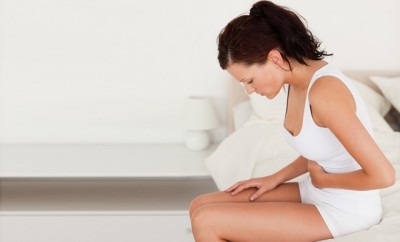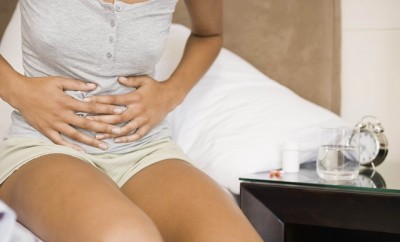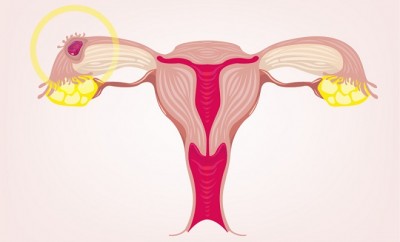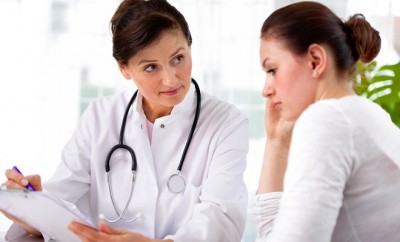What do Implantation Cramps Feel Like? Reasons for Cramping Pain in the Middle of the Cycle
Implantation of the embryo is an important and painless process, which takes place when pregnancy occurs. Mid-cycle pain is often caused by ovulation, which is sometimes confused with much anticipated implantation. The period dispels the doubts. Implantation cramps may be explained by flatulency or other gynecological, urinary or gastrointestinal diseases.
Implantation of the embryo is a process, which takes place at the cellular level and covers three stages. Despite the fact that implantation can be accompanied by some bleeding, it is practically impossible to feel implantation cramps.
Often women confide to each other “symptoms”, which they attribute to implantation – cramps, tingling, etc. This has to do with the fact that every mother would wish to track the very moment, when the most precious life in her lifetime originated. Alas, in reality all such symptoms have a different explanation.
Most often, the anticipated implantation period overlaps with banal intestinal colic – flatulency. They can be the reason for both bursting and dragging pain. But what else can be taken for implantation cramps?
Types and causes of acute pelvic pain in the middle of the menstrual cycle
Cramping abdominal pain before or during a period is called dysmenorrhea. It is expected at the end and at the beginning of the cycle, whereas some women experience ovulatory pain in the middle of it.
Ovulatory pain is a bursting and pressing sensation, associated with distention of capsule of the ovulating ovary. Most women, particularly those, who want to get pregnant, confuse it with implantation cramps. They watch out for their organisms and feeling some pain, they are filled with the hope that it is caused by the process of implantation.
However, “unexpected” mid-cycle pain has quite a different nature. It might be caused by three groups of factors: associated with pregnancy, not associated with pregnancy and extra-gynecological.
Cramps, as a sign of pregnancy
Bursting pain is quite a normal pregnancy symptom, as the swollen uterus starts stretching surrounding organs. At the same time, repeating cramps at early stages of pregnancy may also be indicative to an increased uterine tonus, which has negative effect on child bearing and requires clinical surveillance. However, these symptoms show up a few weeks after implantation and can hardly be confused with it.
Pain in case of a threatened miscarriage or ectopic pregnancy also occurs later in time, it is significantly intense and may be accompanied by nausea, rise of temperature and/or faintness. Such cases require immediate hospitalization.
Gynecological diseases, which might cause pain
Reasons from the second group:
- Follicular cyst;
- Corpus luteum cyst;
- Uterine tumors;
- Ovary neoplasms;
- Torsion of uterine appendages;
- Gynecological infections;
- Endometriosis – expansion of the endometrial lining out of the uterine cavity;
- Adenomyosis – in-growth of endometrial tissue into the underlying muscular propria.
At that, for instant, the follicular cyst, will cause a delay of menstruation. In other words, cramps, associated with the follicular cyst might wrongly be interpreted as implantation cramps. The pain that has to do with the above mentioned diseases, might occur on any day of the cycle, therefore at the very beginning it can be taken for implantation cramps. Its intensification can testify to complications (torsion, break of a cyst, tumor necrosis, etc.) and constitute a life-threatening situation.
Extra-gynecological pathology
Characteristic abdominal dragging pains are often called cystitis or obstructed ureter patency. Inflammatory processes in the intestinal tract may also be taken for implantation cramps. However, doubts are dispelled along with increase and intensification of symptoms. Only medical investigation can provide for accurate diagnostics.
Thus, in case it is the first time that you experience mid-cycle pains, and the period does not occur in a timely manner, then apart from taking a pregnancy test, you should seek medical help to find out actual reasons for such sensations.














